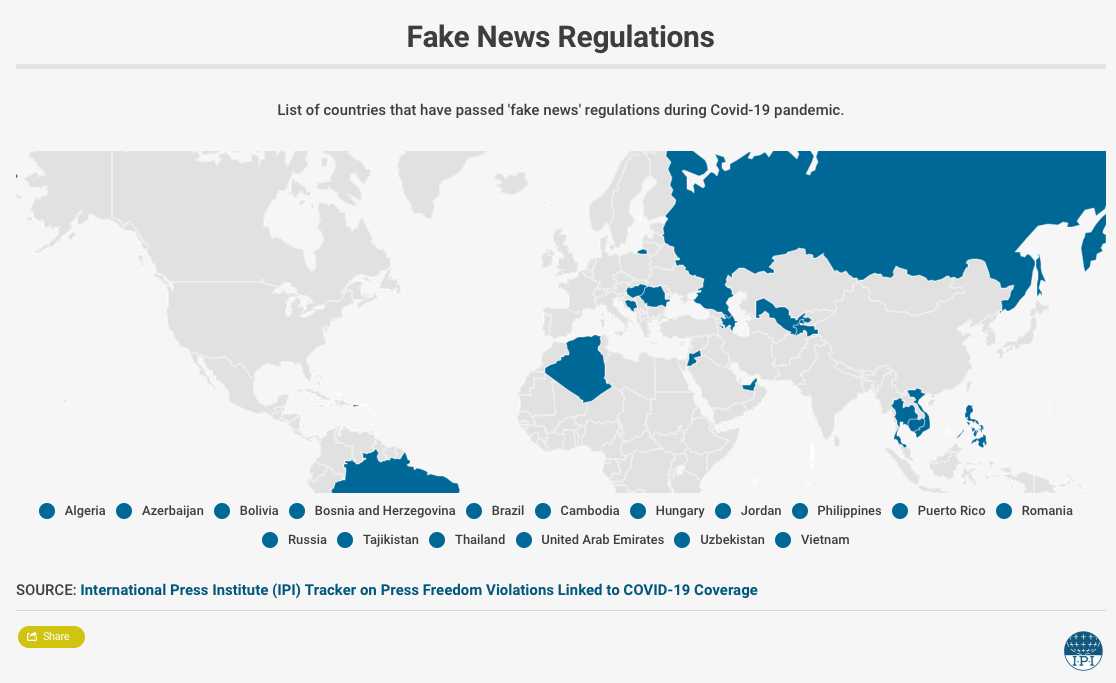The International Press Institute (IPI), a global network of editors, media executives and leading journalists for press freedom, expressed strong concern over controversial amendments in Tajikistan saying these measures will stifle press freedom in the country.
On July 4th, President Emomali Rahmon signed amendments to the Code of Administrative Offenses that make it illegal to disseminate false information about the COVID-19 pandemic in the media, internet and social media. The amendments had been unanimously approved by both houses of Tajikistan’s parliament.
Those convicted under the amended offence could face administrative detention of up to 15 days and fine ranging from 580 to 1,160 somoni (around 50 to 100 euros), whereas media outlets could be fined 8,700-11, 600 somoni (800 to 1,100 euros), reports said.
“The vague terms of these amendments threaten to expand censorship in Tajikistan in the name of combatting the COVID-19 pandemic”, IPI Director of Advocacy Ravi R. Prasad said. “While disinformation around the coronavirus is a legitimate concern, such broad measures as this overshoot the mark and risk being misused to harass journalists and limit the freedom to receive and spread information that does not follow the official line.”
The amendments do not provide clear guidance on how the government is to determine the falsity of information. Civil society and media organizations, both in Tajikistan and internationally, have warned that, in practice and without an expert commission, the only information which will be considered “accurate and truthful” will be information provided by the government. They have also expressed the concern that the law would be used to prosecute activists and journalists.
